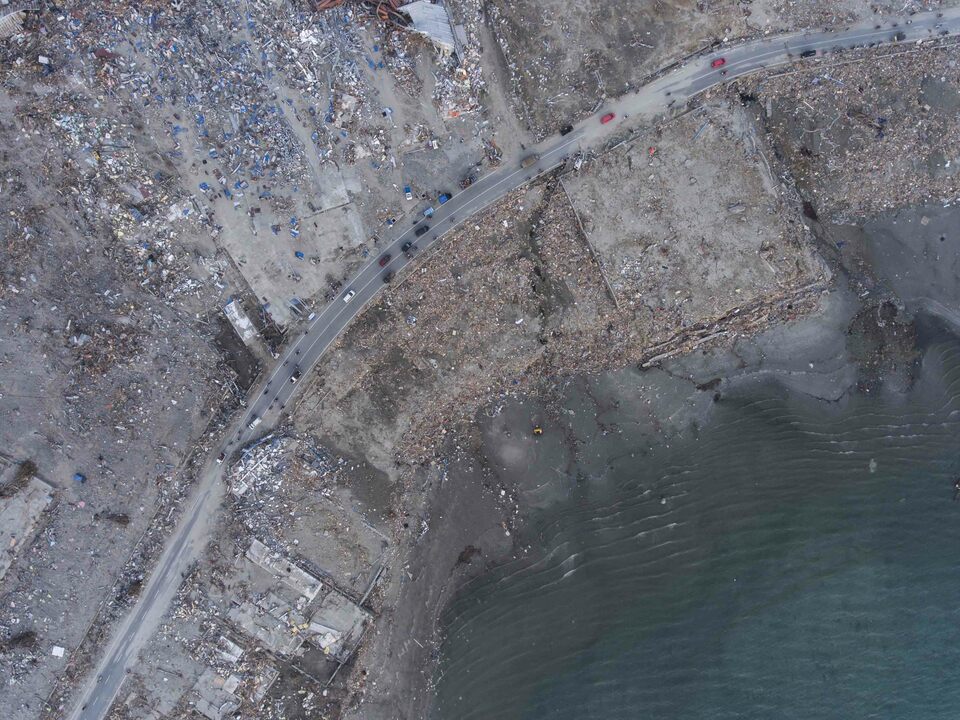Central Sulawesi Quake, Tsunami Expose Weakness in Indonesia's Disaster Preparedness

Jakarta. Questions surrounding Indonesia's early warning system and disaster mitigation efforts have surfaced following last week's devastating earthquake and tsunami in Central Sulawesi, which revealed substantial shortcomings due to insufficient funding.
Speaking at a press conference in Jakarta on Wednesday (03/10), National Disaster Mitigation Agency (BNPB) spokesman Sutopo Nugroho said the current infrastructure, facilities and efforts to raise awareness of the need for tsunami preparedness are "extremely minimal."
"The budget, both the state budget and regional budgets, for tsunami disaster mitigation is very limited; our disaster management budget at the BNPB has continued to decline [over the years]," Sutopo said.
According to Finance Ministry data, less than Rp 800 billion ($49 million) was allocated to the agency in 2018, compared with Rp 1.8 trillion the year before.
The death toll in last week's magnitude-7.4 earthquake, which was followed by a tsunami, currently stands at 1,424, while 2,549 were seriously injured. More than 70,000 people were left homeless, according to the BNPB's most recent report.
The country has been rocked by several major earthquakes in recent months, including one with a magnitude of 7 that killed 564 people and injured nearly 1,600 on Lombok Island in West Nusa Tenggara in August.
Sutopo noted that Indonesia's lack of research and mitigation efforts on tsunamis have led to many people continuing to live in disaster-prone areas. According to BNPB estimates, more than 148 million people live in quake-prone areas and 3.8 million in tsunami-prone areas.
When it comes to tsunamis, the country has an early warning system consisting of tidal gauges, buoys and seismographic sensors.
Sutopo said this system has been working so far, but he acknowledged that none of the 22 open-water tsunami buoys have been operational since 2012 due to vandalism and poor maintenance.
"The tsunami that occurred in Palu is a lesson for us; we should not only add or improve our [buoys] but since vandalism is an issue, we should develop seafloor sensors," Sutopo said. He added that the Agency for the Assessment and Application of Technology (BPPT) is capable of this task.
However, as is now evident from the Central Sulawesi disaster, the problem also extends to the fact that many tsunami sirens did not function properly, having either been stolen or damaged.
There are also considerable deficiencies in other crucial disaster preparedness measures.
For example, the Meteorology, Climatology and Geophysics Agency (BMKG) only has 56 sirens across the country, despite the optimal number being 1,000.
In addition, there are only 50 temporary evacuation areas and 10,000 evacuation signs in Indonesia, despite requirements for 2,200 and 500,000, respectively.
Sutopo further highlighted that culture plays an important role in improving the country's early warning system. He said such systems should therefore incorporate science, technology and local cultural practices.
"There are cases where a cultural approach is much more effective compared to science and technology," Sutopo said.
Tags: Keywords:POPULAR READS
Rupiah Declines Against Dollar Amid Geopolitical Unrest
The Indonesian rupiah depreciated against the US dollar in Tuesday's trading session, driven by escalating tensions between Iran and IsraelNasdem Vows to Honor the Constitutional Court Ruling on 2024 Presidential Election Dispute
Nasdem's Willy Aditya commits to respect the Constitutional Court's ruling on the 2024 presidential election dispute.Jokowi Calls for Internal Meeting to Prepare for Economic Fallout from Iran-Israel Conflict
Minister Airlangga Hartarto announced President Jokowi's plan to hold an internal meeting on Tuesday to address the Iran-Israel conflict.Coach Shin Tae-yong Voices Outrage Over Referee Decisions After Indonesia's Defeat to Qatar
Indonesia's AFC U-23 defeat to Qatar leaves Garuda squad with 9 players, bottom of Group A.Knife Attack Against Bishop, Priest in Sydney Treated as Terrorism, Police Say
Police arrested a 16-year-old boy Tuesday after the stabbing at Christ the Good Shepherd Church.Popular Tag
Most Popular






















